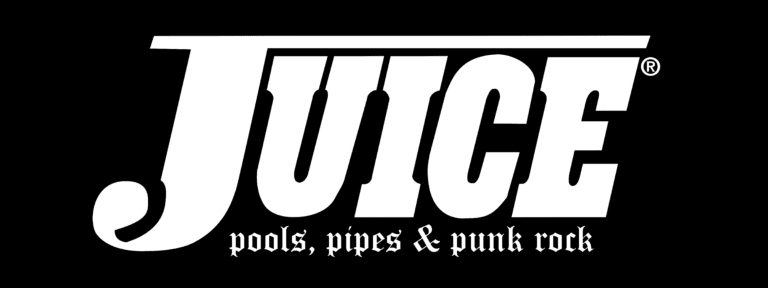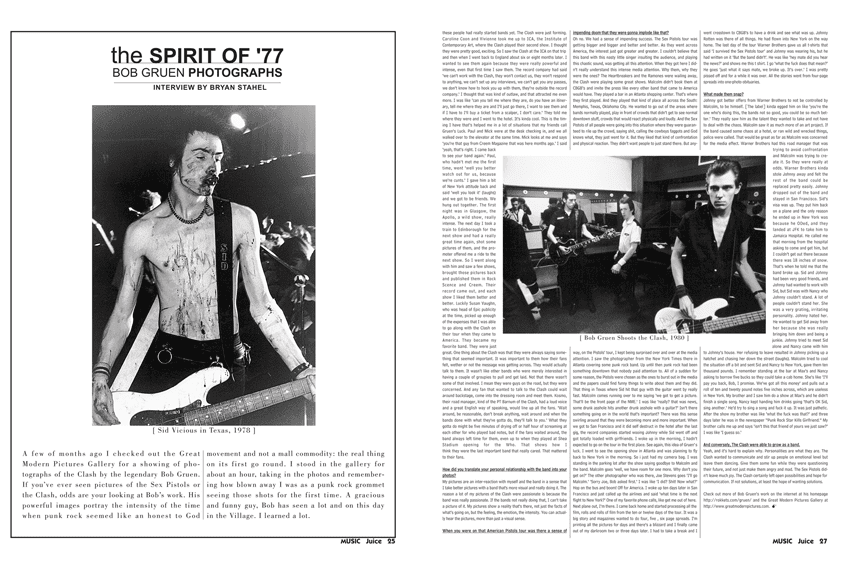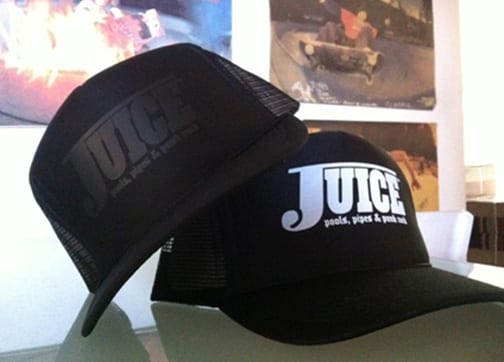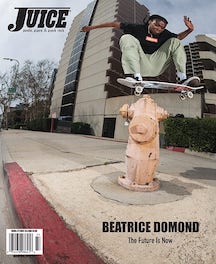THE SPIRIT OF ’77: BOB GRUEN PHOTOGRAPHS
INTERVIEW BY J. BRYAN STAHEL
INTRODUCTION BY J. BRYAN STAHEL
A few of months ago I checked out the Great Modern Pictures Gallery for a showing of photographs of the Clash by the legendary Bob Gruen. If you’ve ever seen pictures of the Sex Pistols or the Clash, odds are your looking at Bob’s work. His powerful images portray the intensity of the time when punk rock seemed like an honest to God movement and not a mall commodity: the real thing on its first go round. I stood in the gallery for about an hour, taking in the photos and remembering how blown away I was as a punk rock grommet seeing those shots for the first time. A gracious and funny guy, Bob has seen a lot and on this day in the Village. I learned a lot.
Where are you from?
Long Island. I was born in New York and moved back into the city when I was 18, I’ve been here in the Village ever since.
What got you into photography?
My mother. It was my mom’s hobby. Ever since I was born, my mom used to develop and print her own pictures. It was like the magic of photography, being able to create and recreate happy moments. So I grew up as the family photographer, taking pictures of the whole family and I kinda just graduated into music. My friends in high school were musicians and actors. After I got out of high school and started taking pictures, I was taking pictures of my friends who had a band and they got signed to Atlantic Records. Then I started taking pictures of one band after another and then they started hiring me. Each time I would get hired, I’d meet more people, opening bands, the headliners, managers and get hired to do other things. One thing just kind of led to another until I was taking pictures of bands as my job, which I never expected. We had kind of dropped out in the 60s, ya know, kind of tune in, turn on time and I never really looked for a career. I wasn’t wanting to be part of the establishment because they were fighting an immoral war. Nowadays everybody is the establishment and this is kind of a good thing. They’re not all anticipating careers and as much as people say no future. They’re betting on a future and they’re banking on a future and they want to have an income and a comfortable lifestyle. Whereas the hippies came from such a comfortable lifestyle they thought you could just drop out and get a crash pad and be comfortable too or something. But nobody was really looking for careers back then.
“The Sex Pistols were kind of a physical, angry, more physical level of screaming and yelling and wanting to hit people that walked by. The Clash had the same concerns, but dealt with it in a more intellectual and introspective way in trying to figure out what you can do about it, and how can you deal with it without having to punch the guy next to you. The Sex Pistols were more simple: “I want to destroy passersby.” The Clash were like: “What can you do? What’s going on?”
So did Johnny really mean “No Future”?
Well, yeah, because there was a frustration and a desperation about the future and about the pollution and the limited opportunities. In essence, the lies of the Norman Rockwell era where everybody’s going to be good and everything’s going to be perfect didn’t exist. The future was much colder and harder than people than people had imagined. Mostly what they meant about ‘no future’ was not that the earth doesn’t go on, but that you don’t live with the sense of future. You don’t live with a sense that your life is gonna progress. You live with a fear that a terrorist bomb is gonna go up, that there will be no jobs, the food will run out or the water will be poisoned. That’s what the no future comes from. There’s no future to look forward to.
So that nihilistic approach was just a backlash to the generation before?
Yeah. Certainly a backlash and an anger but they weren’t the only ones ya know, and there were different viewpoints. The Sex Pistols were kind of a physical, angry, more physical level of screaming and yelling and wanting to hit people that walked by. The Clash had the same concerns, but dealt with it in a more intellectual and introspective way in trying to figure out what you can do about it, and how can you deal with it without having to punch the guy next to you. The Sex Pistols were more simple: “I want to destroy passersby.” The Clash were like: “What can you do, what’s going on?”
Do you think the reggae influence helped that?
What’s interesting is that they all had the reggae influence. The Clash put it more into their music and had more introspective moments during the concert but they also stayed together as a band longer and progressed longer. I don’t think they did that much introspection in the early days. As the concerts got longer and they got better at it. They had Armagideon Time, and Straight to Hell and other songs that kind of got off into other rhythms in the show to think and question what was going on and think about what they’ve been yelling about ten minutes earlier. The Sex Pistols got cut off before they ever got their chance. But what was funny was backstage. Don Letts was a reggae DJ and a rasta who lived in London and was a close friend of Johnny Rotten and Mick Jones and Joe Strummer. He had this Jamaican connection and was friends with the punks so he was the place to get all these great dub records which was kinda a new thing in 1976 and 1977. Sitting on the Clash bus across America, they’d be listening to a Don Letts tape but sitting on the Sex Pistols bus, they’d have the same tape.
How much credit does Malcolm McLaren deserve for the Pistols?
He created the band. Malcolm was an artist, but then he went into selling clothes to make a living, but very confrontational kind of clothes. He was selling S&M masks with a zipper for a mouth and someone called The Cambridge Rapist used that mask to disguise himself. It was a highly-publicized case, and the police wanted Malcolm to release their client list. There were other places to get those masks, so Malcolm wouldn’t release it, and instead made a t-shirt of a picture of somebody in the mask saying “The Cambridge Rapist” just to provoke people. It was just a confrontational, make-you-think kind of thing. He saw the New York Dolls and loved them and they were so outrageous and he realized how much media attention they got, but Malcolm arrived in New York too late because Johnny Thunders and Jerry Nolan were pretty well into the dope and Arthur Kane was passing out from being way too drunk. There wasn’t much left of the band. So he pulled them together and he got Johnny and Jerry into rehab and cleaned them up a little bit, enough to do a show for two weekends at the Hippodrome in New York City. They were the last two shows they did in New York. Malcolm was really hustling trying to get them a tour going through the South to really shock, to play local clubs in Southern towns rather than in New York on the Lower East Side where people came to accept them and love them for their weirdness. Down there they would really aggravate people. That’s what Malcolm was trying to do, bring the Dolls to a new level by confronting the American people with them, not just the downtown artist scene. David Johansen decided to call it quits because he didn’t want to work with junkies, so the band was over. Malcolm’s dream of managing the Dolls was blown up. So he and Syl Sylvain concocted a plan to go to England and make another band like the Dolls. Syl didn’t go to England and instead Malcolm formed the Sex Pistols with musicians he found. Malcolm formed the band with the intention of confronting the local populace, a band on a more political level, higher profile and able to incite chaos.
Was Rotten rotten when Malcolm found him?
He’s still rotten. There’s a reason they call him Rotten. He’s not a pleasant person. He’s rather insulting and rude most of the time. He does have his moments when he’s not going out of his way to insult people, but most of the times that I’ve seen him he really does seem to go out of his way to be insulting. He’s good at that. He does it well. He doesn’t seem to be acting and if he is, he’s a natural. The first time I met him, I had met the other Pistols first and they seemed like nice guys, but Johnny Rotten was nasty, this insulting little turd that you wanted to smack.
And Sid?
His viciousness was overrated. I never saw him vicious and I spent a lot of time with him. When called out he could react in simple angry ways. If somebody hit him, he’d hit back, if somebody threw something at him, he’d swing his bass and knock the guy away.
You were at the Texas shows…
Yeah, but he didn’t just take his guitar off and start wildly hitting people in the crowd. Some guy was really taunting him and throwing shit at him and he fuckin’ took the guitar and whacked the guy, like shut the fuck up. It wasn’t like Sid would sit there sipping a drink and suddenly lash out violently. There was always a pretty good reason for his reaction to the circumstances.
Do you think he killed Nancy?
No. I don’t think he killed her, certainly not intentionally. He loved Nancy, if he loved anybody, and I think he did. There are mitigating factors here. Tuinols make you very mean, and they weren’t on dope, as such, that night. They were taking tuinols because there wasn’t good heroin around. There were a lot of people around in the Chelsea Hotel in those days who were on drugs and would have killed for more drugs or more money. Sid and Nancy had a lot of money and drugs in those days. They were pretty silly about it. They had thousands of dollars in twenties in paper bags when they would come back from a gig at Max’s or something. Nancy would drop it and it would fall open in the lobby. I mean that part of the movie is kinda real. They don’t explain as much in the movie how that would set them up for situations where they were laying in their room passed out and someone could come in and try and take the money. It could also be that he cut her, or that she cut herself. She may have rolled over on the bed on the knife. The way she was found in the bathroom was like she went in to see what was wrong, and it was more serious than she thought, and fell down and bled to death without being able to call for help. I don’t think that Sid [killed her], I mean he certainly wouldn’t do it on purpose. You know the thing is, he died in a few months. He never had a trial, and since they were both junkies, nobody really cared. Made a good story “Punk Rocker Kills Girlfriend.” So the cops didn’t really pursue it. A lot of people who were there scattered. I mean there was a mass exodus of people disappearing for a few weeks.
How did you get involved with the Clash?
I’m lucky. I have a knack for being in the right place a the right time and I had a way of working in the ’70s for big groups getting paid to take pictures of bands like Led Zeppelin or the Who. You name it. What I call my day job and after that was done even at 11 or 12 at night, I would be able to get down to CBGBs or Max’s, second show was at one in the morning, and see bands like Television and Blondie till 3:30 in the morning. It was more fun because you could hang around the bar, have some beers and talk to the cute girls. Whereas uptown at the theaters, at Madison Square Garden, there was more money in those bands, but the shows were much more contrived and controlled. Anyway I had met Malcolm before and I had made some money shooting KISS and had gone to Europe for the first time. When I got to England, Malcolm was the only number I knew, so I called him up. Malcolm found me a little rooming house and a room to crash in, which I did for a couple of days. He took me down to the store he and Vivienne Westwood had, Sex. Sid was actually a clerk in the store. At the time, I was taking pictures of everything for Rock Scene magazine, even the fashion places, nightclubs, everything that was going on because it kind of covered the lifestyle in a sense. We called it the scene. At night they took me down to this place called Club Louise, which had been a lesbian bar and they weren’t doing so well. So they had started letting these young musicians hang out in the downstairs section. I met the whole gamut of who was up and coming in the punk rock scene to be in a sense. I didn’t realize how aware they were of who I was, and where I was coming from, that I had hung out with the Dolls, at CBGBs with Patti Smith and Richard Hell. For me, this was normal. It was my hobby. They didn’t really have a name for the music because it was going nowhere. It was just sort of downtown bands. I didn’t know that in England they were so much more aware of what was going on. I was sitting around going, “Who the fuck are these people?” Malcolm had this new group, the Sex Pistols, and they were supposed to be kinda outrageous. I didn’t know what was so outrageous about them, but I was gonna find out. They seemed like a bunch of yabbos, regular joes grabbing beers just like everybody else, a little bit louder. I met Joe Strummer and Mick Jones, Billy Idol, Siouxie and the Banshees, a contingent of girls called the Bromley girls. None of these people had really started bands yet. The Clash were just forming. Caroline Coon and Vivienne took me up to ICA, the Institute of Contemporary Art, where the Clash played their second show. I thought they were pretty good, exciting. So I saw the Clash at the ICA on that trip and then when I went back to England about six or eight months later, I wanted to see them again because they were really powerful and intense, even that first time I saw them. The record company had said ‘We can’t work with the Clash, they won’t contact us, they won’t respond to anything, we can’t set up any interviews, we can’t get you any passes, we don’t know how to hook you up with them, they’re outside the record company.” I thought that was kind of outlaw, and that attracted me even more. I was like “Can you tell me where they are? Do you have an itinerary? Tell me where they are. I’ll just go there, I want to see them and if I have to I’ll buy a ticket from a scalper, I don’t care.” They told me where they were and I went to the hotel. It’s kinda cool. This is the timing I have that’s helped me in a lot of situations that my friends call Gruen’s Luck. Paul and Mick were at the desk checking in, and we all walked over to the elevator at the same time. Mick looks at me and says “You’re that guy from Creem Magazine that was here months ago.” I said “Yeah, that’s right. I came back to see your band again.” Paul, who hadn’t met me the first time, went, “Well you better watch out for us, because we’re cunts.” I gave him a bit of New York attitude back and said, “Well, you look it.” (Laughs) And we got to be friends. We hung out together. The first night was in Glasgow, the Apollo, a wild show, really intense. The next day I took a train to Edinborough for the next show and had a really great time again, shot some pictures of them, and the promoter offered me a ride to the next show. So I went along with him and saw a few shows, brought those pictures back and published them in Rock Scene and Creem. Their record came out, and each show I liked them better and better. Luckily, Susan Vaughn, who was head of Epic publicity at the time, picked up enough of the expenses that I was able to go along with the Clash on their tour when they came to America. They became my favorite band. They were just great. One thing about the Clash was that they were always saying something that seemed important. It was important to them how their fans felt, whether or not the message was getting across. They would actually talk to them. It wasn’t like other bands who were merely interested in having a couple of groupies to pull and get laid, not that there wasn’t some of that involved. I mean they were guys on the road, but they were concerned. And any fan that wanted to talk to the Clash could wait around backstage, come into the dressing room and meet them. Kosmo, their road manager, kind of the PT Barnum of the Clash, had a loud voice and a great English way of speaking, would line up all the fans. “Wait around, be reasonable, don’t break anything, wait around and when the bands done with what they’ve gotta do, they’ll talk to you.” What they gotta do might be five minutes of drying off or half hour of screaming at each other for who played bad notes, but if the fans waited around, the band always left time for them, even up to when they played at Shea Stadium opening for the Who. That shows how I think they were the last important band that really cared. That mattered to their fans.
How did you translate your personal relationship with the band into your photos?
My pictures are an inter-reaction with myself and the band in a sense that I take better pictures with a band that’s more visual and really doing it. The reason a lot of my pictures of the Clash were passionate is because the band was really passionate. If the bands not really doing that, I can’t take a picture of it. My pictures show a reality that’s there, not just the facts of what’s going on, but the feeling, the emotion, the intensity. You can actually hear the pictures, more than just a visual sense.
When you were on that American Sex Pistols tour, was there a sense of impending doom that they were gonna implode like that?
Oh no. We had a sense of impending success. The Sex Pistols tour was getting bigger and bigger and better and better. As they went across America, the interest just got greater and greater. I couldn’t believe that this band with this nasty little singer insulting the audience, and playing this chaotic sound, was getting all this attention. When they got here, I didn’t really understand this intense media attention. Why them? Why they were the ones? The Heartbreakers and the Ramones were wailing away. The Clash were playing some great shows. Malcolm didn’t book them at CBGBs and invite the press like every other band that came to America would have. They played a bar in an Atlanta shopping center. That’s where they first played. They played that kind of place all across the South: Memphis, Texas, Oklahoma City. He wanted to go out of the areas where bands normally played, play in front of crowds that didn’t get to see normal downtown stuff, crowds that would react physically and loudly. The Sex Pistols, of all people, were going into this situation where they were guaranteed to rile up the crowd, saying shit, calling the cowboys names and God knows what. They just went for it. They liked that kind of confrontation and physical reaction. They didn’t want people to just stand there. But anyway, on the Pistols tour, I kept being surprised over and over at the media attention. I saw the photographer from the New York Times there in Atlanta covering some punk rock band. Up until then, punk rock had been something downtown that nobody paid attention to. All of a sudden, for some reason, the Pistols were chosen as the ones to burst out in the media and the papers could find funny things to write about them and they did. That thing in Texas where Sid hit that guy with the guitar went by really fast. Malcolm comes running over to me saying “We’ve got to get a picture. That’ll be the front page of the NME.” I was like “Really? That’s news, some drunk asshole hits another drunk asshole with a guitar?” Isn’t there something going on in the world that’s important? There was this sense swirling around that they were becoming more and more important. When we got to San Francisco and it did self destruct in the hotel after the last gig, the record companies started wooing Johnny while Sid went off and got totally loaded with girlfriends. I woke up in the morning, I hadn’t expected to go on the tour in the first place. See again, this idea of Gruen’s luck. I went to see the opening show in Atlanta and was planning to fly back to New York in the morning. I just had my camera bag. I was standing in the parking lot after the show saying goodbye to Malcolm and the band. Malcolm goes, “Well, we have room for one more. Why don’t you get on?” The other photographer who was there, Joe Stevens said, “I’ll go Malcolm.” Malcolm said, “Sorry, Joe, Bob asked first.” I was like “I did? Shit! Now what?” Hop on the bus and boom! Off for America. I woke up ten days later in San Francisco and just called up the airlines and said, “What time is the next flight to New York?” One of my favorite phone calls. It was like, “Get me out of here.” Next plane out, I’m there. I came back home and started processing all the film, rolls and rolls of film from the ten or twelve days of the tour. It was a big story and magazines wanted to do four, five, six page spreads. I’m printing all the pictures for days and there’s a blizzard and I finally came out of my darkroom two or three days later. I had to take a break and I went crosstown to CBGBs to have a drink and see what was up. Johnny Rotten was there of all things. He had flown into New York on the way home. The last day of the tour Warner Brothers gave us all t-shirts that said, ‘I survived the Sex Pistols tour’. Johnny was wearing his, but he had written on it, ‘But the band didn’t’. He was like, “Hey, mate, did you hear the news?” And he shows me this t-shirt. I said, “What the fuck does that mean?” He goes, “Just what it says, mate. We broke up. It’s over.” I was pretty pissed off and for a while it was over. All the stories went from four-page spreads into one-photo obituaries.
What made them snap?
Johnny got better offers from Warner Brothers to not be controlled by Malcolm, to be himself. [The label] kind of egged him on like, “You’re the one who’s doing this. The bands not so good. You could be so much better.” They really saw him as the talent they wanted to take and not have to deal with the chaos. Malcolm saw it as much more of an art project. If the band caused some chaos at a hotel, or ran wild and wrecked things, police were called. That would be great as far as Malcolm was concerned for the media effect. Warner Brothers had this road manager that was trying to avoid confrontation and Malcolm was trying to create it, so they were really at odds. Warner Brothers kind of stole Johnny away and felt the rest of the band could be replaced pretty easily. Johnny dropped out of the band and stayed in San Francisco. Sid’s visa was up, so they put him back on a plane and the only reason he ended up in New York was because he ODed, and they landed at JFK to take him to Jamaica Hospital. He called me that morning from the hospital asking to come and get him, but I couldn’t get out there because there was 18 inches of snow. That’s when he told me that the band broke up. Sid and Johnny had been very good friends, and Johnny had wanted to work with Sid, but Sid was with Nancy who Johnny couldn’t stand. A lot of people couldn’t stand her. She was a very grating, irritating personality. Johnny hated her. He wanted to get Sid away from her because she was really bringing him down and being a junkie. Johnny tried to meet Sid alone and Nancy came with him to Johnny’s house. Her refusing to leave resulted in Johnny picking up a hatchet and chasing her down the street. (Laughs). Malcolm tried to cool the situation off a bit and sent Sid and Nancy to New York, gave them ten thousand pounds. I remember standing at the bar at Max’s and Nancy was asking to borrow five bucks so they could take a cab home. She’s like, “I’ll pay you back, Bob, I promise. We’ve got all this money.” She pulls out a roll of ten and twenty pound notes five inches across, which are useless in New York. My brother and I saw him do a show at Max’s and he didn’t finish a single song. Nancy kept handing him drinks going, “That’s okay, Sid, sing another.” He’d try to sing a song and fuck it up. It was just pathetic. After the show my brother was like “What the fuck was that?” Three days later he was in the newspaper “Punk Rock Star Kills Girlfriend.” My brother calls me up and says “Isn’t this that friend of yours we just saw?” I was like, “I guess so.”
Check out more of Bob Gruen’s work on the internet at his homepage http://www.bobgruen.com/ and the Great Modern Pictures Gallery at http://www.greatmodernpictures.com.
TO ORDER JUICE MAGAZINE ISSUE #46, PLEASE CLICK HERE FOR MORE INFORMATION.
SHARE THIS POST:
- Click to email a link to a friend (Opens in new window)
- Click to share on Tumblr (Opens in new window)
- Click to share on LinkedIn (Opens in new window)
- Click to share on Pinterest (Opens in new window)
- Click to share on Twitter (Opens in new window)
- Click to share on Facebook (Opens in new window)
- Click to share on Reddit (Opens in new window)
- Click to print (Opens in new window)











